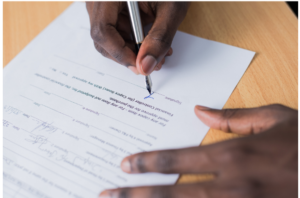Hot off the presses: Here you have it – A beginner’s guide to home buying in Seattle.
Many first time home buyers are intimidated by the high costs associated with entering the Seattle housing market. They don’t want to wait too long to buy either for fear that ongoing price appreciation will continue to keep them increasingly far from their goals of home ownership.
First-time home buyers usually find the whole process rather intimidating because of the high amounts of money involved and the fast-paced and competitive Seattle housing market, where desirable homes are often snatched up within a week, and receive multiple offers to purchase.
If you are thinking about buying your first house in Seattle and have tons of questions, I hope this guide will help you. If you need additional information, please contact my office.
When it comes to purchasing your first home, there is a lot to understand and many pieces that have to be in place. Otherwise, you run the risk of making an enormously costly mistake in the largest financial transaction of your life. You don’t want to buy the wrong home, buy at the wrong time, or realize there is something major wrong with the home after you’ve moved in.
That’s why home buyers enjoy working with real estate agents who can guide them through the process and act as their advocates and advisors. Really, though, it’s not all that difficult if you’re forearmed with some knowledge. And that’s why we’ve created this beginner’s guide to home buying in Seattle.
A Beginners Guide To Home Buying In Seattle
Home Buying Step 1: Determine What You Can Really Afford

Take a Look at Your Finances and Funding
The first admonishment in any beginner’s guide to home buying in Seattle should be to determine how much home you can actually afford. Ending up “house poor” is a terrible feeling – where you can’t enjoy parts of your life you have in the past because you are strapped for cash and just trying to make the mortgage payment on time each month.
In order to get an accurate sense of how much it will cost to keep your standard of living going and take care of your new home, you’ll need to look at much more than just the sale price of the property you’re considering..
Typically, you should try to put 20% down as a down payment. That means if you’re looking at a $500,000 house, you will need $100,000 in cash as a down payment. That’s a lot of money. Some people save for years to accumulate this amount. Some people have parents who help them get the money together. Others find a lender who can help them get into a property with a down-payemnt assistance program.
To get an idea of what you can afford month-to-month, you can use this rule of thumb: The home should cost no more than three to five times your annual household income, and you should not have a great amount of other debt (car debt, student loans, credit card debt) that is eating up your income. The more debt you have, the less house you should buy. So, if you make $150,000/year as a family, three to five times that amount would be: $450,000 – $750,000. Some of this will depend on the current interest rates, since that can greatly impact the affordability of homes.
There are, however, other financial considerations that go into determining what you can really afford. You’ll also have to factor in property taxes, homeowner’s insurance, possibly HOA fees, repair and maintenance costs, and all your other recurring monthly expenses. So don’t just add your estimated PITI to your current budget, make sure you account for things like saving for a new roof, replacing the heating system, and paying more utilities each month for more space.
Home Buying Step 2: Get Pre-Qualified and Pre-Approved
Do you have a mortgage broker yet or have you talked to the lending department at your bank? Once you’ve determined how much home you can afford, it’s time to get pre-qualified and pre-approved for the mortgage.
I am happy to introduce you to the lenders I work with, but I expect wherever you have your checking account would be happy to give you a loan. If you want something special – like a down payment assistance loan or a rehab loan to fix up the property you’re purchasing, it may be worth finding a lender who specializes in that.
Your lender will review your financial information and then let you know how much they will lend you.
Expect to provide the lender with:
- Pay Stubs
- Tax Returns
- W-2
- Copies of Bank Statements
- Records of Assets (Investment Accounts)
- Records of Debts, Loans or Payments Due
- Proof of additional income (eg. Child/Spousal Support)
After your lender has reviewed your documents ask him for your pre-approval letter. This will show sellers that they won’t have to wait for you to get approved for a loan and that you are a serious buyer. Being pre-approved is an important part of being a strong, competitive buyer in the Seattle real estate market.
Home Buying Step 3: Start Shopping and Then Make an Offer
This may seem like an overly-obvious step in a guide to home buying in Seattle, but the trick is getting it in the right place – after you’ve figured out what you can afford and after you’ve been preapproved. So many people want to start with this step, and get their heart set on a home they are not prepared to buy because they are not set up with their lender yet.
You will want to lean on the expertise of your agent during the offer and negotiations process. With her experience and expertise, your agent can help you get a better deal. Find out more by calling (206) 578-3438.
When you put an offer in on the property you have chosen, you should feel committed to buying it if all goes well. You will have to submit a few thousand dollars of (refundable) Earnest Money to show the seller you are serious. You will also need to start right away on pursuing the due-diligence items spelled out in the purchase contract, such as getting your inspection and loan going.
Home Buying Step 4: Have an Inspection Done
Once you are under contract (sometimes before if you are in a super-tight market) you will want the property you are buying to be inspected by a professional inspector. The purpose of the inspector is to look at the major structures and systems of the home and make sure they are working properly. Your lender will likely require an inspection, but you should insist on one as well for your protection. Sellers aren’t always as forthcoming in the disclosure process as they should be. That’s why this is an important element of our guide to home buying in Seattle.
An inspection will ensure that the home doesn’t have any structural damage or major flaws and so us typically a contingency of the purchase.
The Inspector Will Take A Look At:
- Roof and Gutters
- Water Faucets, Drains, Sewer
- Exterior Sidings and Drainage
- Heater, Air Conditioning
- Water Heater
- Foundation
In addition, you may want to have additional inspections such as:
- Insect/Pest Inspections
- Meth/Contamination Inspections
- Foundation Inspections
Your real estate agent can help you set up the inspection soon after your offer has been accepted. The cost is around $500 but varies depending on the size of the building. If the inspection turns up any problems, then you’ll have to go back to the negotiating table to get the sale price lowered, the repairs made, or a combination of both.
The seller may not be willing to fix anything even if it’s broken and you didn’t know about it when you made your offer. However, if that’s the case, you can escape the deal assuming the Inspection Clause in your Purchase Contract says so. It’s up to you and the seller both to come to a mutual decision. In the event the home seller is intractible and won’t work with you, you will have to see whether the home is worth accepting in as-is condition.
Home Buying Step 5: Choose the Best Mortgage for You and Get an Appraisal

You may already be pre-approved for a mortgage, but you still have to choose the mortgage that best fits your needs and financial situation. Once you have a house under contract, the lender will swing into action. You can, for example, choose between a fixed-rate or an adjustable-rate mortgage. You may also want to lock in your interest rate. Both your lender and your agent can advise you here.
Then you’ll have to get a third-party appraisal done. Both you and your lender will need to know if the home is actually worth what you will be paying for it. This can sometimes be a problem in a rapidly appreciating market, or in a situation where multiple offers have bid-up the value of the home far above what it was listed for.
What if the house doesn’t appraise: If the appraisal comes in lower than expected, you’ll likely have to renegotiate the deal or reconsider whether to go forward with it. If you still want the house and the seller wont work with you, you may need to come up with additional cash to cover the difference between your contract purchase price and the amount of the loan the lender will cover based on the appraisal.
Home Buying Step 6: Get the Paperwork in Order and Close
Buying a home involves a mountain of paperwork. Frankly, its boring and no fun. So before you actually close, the closing agent will need to gather all the pertinent documents and make sure everything is in order. Even though they usually have over a month to work on this, they always seem to end up waiting until the last minute to provide you the paperwork to look at and approve.
One thing they check is to confirm the seller is the actual owner of record of the property, so they can make sure all the proper parties sign the deed when you take over ownership of the property. You do want to make sure that the seller is the actual owner of the home, don’t you? Many people choose to use the services of a real estate attorney at this point, usually your real estate agent will take care of getting everything going with the cooperation of the Title company selected by the buyer and seller and designated in the purchase contract.
Then, finally, its the moment you’ve been waiting for – it’s time to close – to sign the dotted lines, hand over the check, and get the keys to your new home. Typically, it could take from a couple hours to a few days for your loan to be funded after your lender receives the signed paperwork. But once the seller gets the check, you can start moving. Remember to bring things like your drivers license so your signature can be notarized and bring your down payment money in certified funds, or have it wired to the closers account in advance.
Home Buying Step 7: Find a Good, Local Agent

No guide to buying a home in Seattle helps you find the home you have been dreaming of! Contact us today to learn more about how we can help you! (206) 578-3438
